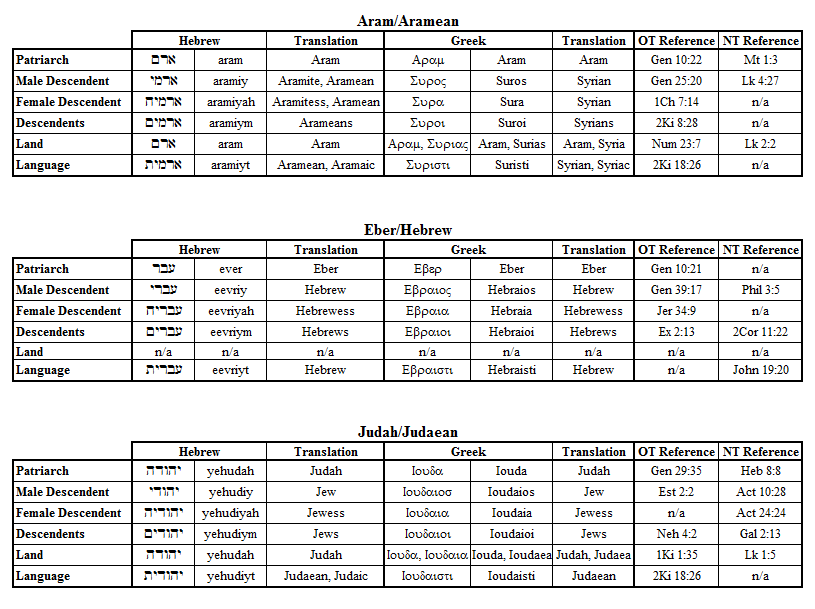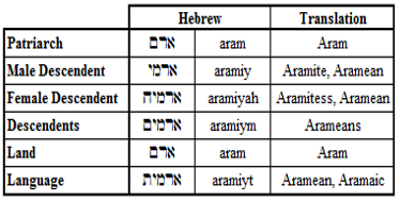Any study in the various names of the Bible should begin with an understanding of how names are formed in Hebrew. The name of a people, their land and their language, begin with a patriarch, an individual who is considered the "father" of a people.
In Genesis 10:22 we read that ארם (Aram) was the son of Shem.
A male descendent of Aram is called an ארמי (aramiy) such as in Genesis 25:20. Some translations, such as the RSV translate this name as Aramean while other translations, such as the KJV and ASV, use the name Syrian which comes from the Greek Septuagint.
A female descendent of Aram is called an ארמיה (aramiyah) as seen in
The descendants of Aram are called ארמים (aramiym), simply the plural form of ארמי (aramiy), such as in 2 Kings 8:28. While the NRS translates this as Arameans, most translations use Syrians.
The land of the Arameans is called ארם (Aram), the same as the name of the Patriarch, such as in Numbers 23:7. Some translations use Aram and Syria for the Hebrew ארם (Aram) interchangeably. For example, in the KJV the name ארם (Aram) is written as Aram in Numbers 23:7 but is translated as Syria in 1 Kings 10:29. Other translations use Syria exclusively.
The language of the Arameans would be called ארמית (aramiyt) as seen in
When doing studies in the New Testament it is helpful to know how the Greek language deals with each of these names. The best way to examine this is through the Greek Septuagint which in some cases, as pointed out above, uses some very different methods for translating names.


Like what you’re discovering? Continue the journey from Bible reader to translator.
|






